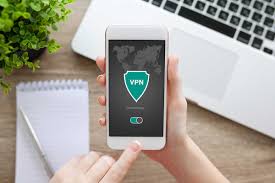VPN or virtual private network is such a programming which can create an encrypted and safe connection over any public internet, a less secured network. The VPN uses a tunnelling protocol for encrypting data right on the end of the sender and decrypt the codes at the end of the receiver. Both the originating as well as the receiving network addresses are encrypted to ensure an advanced security.
VPN can offer freelance workers, the gig economy, business travellers and the remote corporate employees with an access to the software applications hosted by public networks. To obtain an access to the restricted model resources through the VPN the users need to be authorized for using the VPN app. They also have to submit some or other authentication details like biometric data, security token, or a password.
VPN apps are generally used by those who want to protect their transmission of data while visiting any website that is geographically restricted to a certain demography or access such web pages on their mobile. This is common for free sex sites as well as other adult related sites. VPN’s also allow for privacy when using hookup apps and other web apps that a user may want to keep private. However a secured access to these isolated websites or networks via the mobile VPN should never be confused with private mode of browsing. That’s because a private browsing doesn’t include encryption – this is simply a browser setting that that resists any identifying user data like cookies from getting collected and passed to a third party web server.
- How Does a VPN Work?
Basically VPN tunnelling produces a connection between one point to another that cannot be accessible by any unauthorized user. To create a VPN tunnel, the ending device has to run a software application or a VPN client either in the cloud or locally. The VPN client continues to run in the background and never come to the forefront of the end user unless the latter faces any performance issue.
Now the performance of the VPN can be ruined by several factors. One of the most significant reasons is the users’ internet connection speed. Also, if there’s any discrepancy between the type of encryption as used by the VPN and the type of protocol that their internet service providers have, there can be functional error.
In a large enterprise, this performance often gets ruined due to the poor service quality that is beyond control of the respective information technology department of an organization.
- Protocols of VPN
VPN protocols make sure that a suitable level of security is present underlying any public network infrastructure to deliver a robust support to the users. Now there can be distinct protocols as used by the concerning corporate team and the end users. These include the following:
- Transport layer security or TLS and secure sockets layer or SSL
- IP security
- Point to point tunnelling protocol or PPTP
- Layer 2 tunnelling protocol L2TP
- OpenVPN
- Types of VPNs
Deploying a VPN by network administrators can take various modes. Some of these are as follow:
- Remote Access VPN
Here the clients have to connect a particular VPN network server on the network of the organization. The gateway demands to authenticate the identity of the device before allowing an access to internal network sources like intranets, printers, and servers. This sort of VPN generally bases on either Secure Sockets Layer (SSL) or IP Security (IPsec) to authenticate the connection.
- Site to Site VPN
As opposed to the earlier model, this type of VPN utilizes a gateway device for connecting a whole network in the place of a network in a different location. End node devices in the latter location don’t require VPN clients since the gateway can handle the connection. Most of such VPNs are connected across the internet using IPsec. It is also suitable for them to utilize the carrier MPLs clouds instead of the public internet as the transport medium for site to site VPNs.
It is also suitable for using Layer 3 connectivity like MPLS IP VPN or layer 2 connectivity like virtual private LAN service while running through a base transport.
- Mobile VPN

In case of a mobile VPN, the server still stands at the edge of the company network and it enables a secure tunnelling by an authorized and authenticated VPN client. Mobile VPN tunnels are never tied to the physical IP address. Instead of that, each of the tunnels is bound to a systematic IP address. This logical IP address can stick to the mobile device and an effective and functional mobile VPN offers rapid service to the users. This can seamlessly integrate with multiple private and public networks.
Other than these, there are several other VPNs like:
- Hardware VPN
- VPN appliances
- DM VPN or dynamic multipoint virtual private network
- VPN reconnect
We hope our article could provide you with a comprehensive outline of VPN. Comment below and spread your words.
